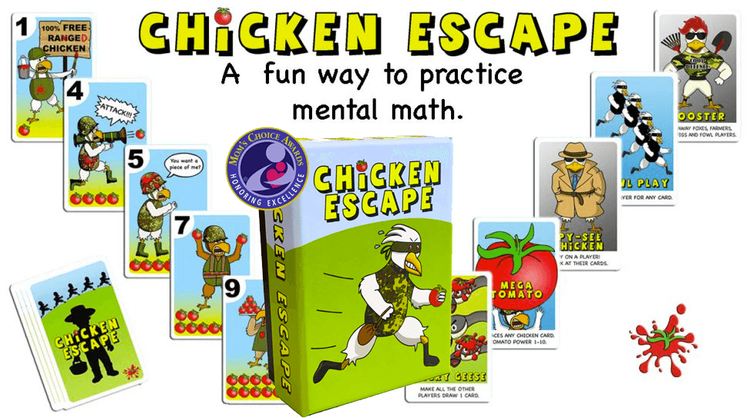Mathematics is often seen as a subject of absolutes, and right and wrong answers, leading many students to believe that mathematical ability is a fixed trait. However, the concept of a growth mindset, popularized by psychologist Carol Dweck, challenges this belief and is revolutionizing math education. A growth mindset encourages the understanding that abilities can be developed through dedication and hard work. In math education, this perspective can transform how students perceive their mathematical abilities and engage with the subject.
Understanding Growth Mindset in Math
A growth mindset in math implies that students can improve their math skills with effort and perseverance. It moves away from the idea that being good at math is an innate skill. This mindset helps students to embrace challenges, persist in the face of setbacks, learn from criticism, and find inspiration in others’ success.
Benefits in the Classroom
- Increased Resilience: Students with a growth mindset are more likely to persist through difficult problems and are less afraid of making mistakes.
- Enhanced Engagement: When students believe they can improve, they are more likely to be actively engaged and take on more challenging tasks.
- Better Performance: Research has shown that fostering a growth mindset can lead to higher achievement and increased motivation.
Strategies for Promoting a Growth Mindset in Math
- Praise Effort, Not Just Ability: Teachers and parents should focus on praising the effort students put into their work, rather than their innate ability.
- Normalize Struggle: Teach students that struggle is a part of learning and not a sign of weakness or lack of ability.
- Use Mistakes as Learning Opportunities: Encourage students to analyze and learn from their mistakes, which can be more instructive than their successes.
- Teach Brain Plasticity: Educate students about how the brain grows and forms new connections when they learn, reinforcing the idea that they can develop their abilities.
- Set Growth Goals: Help students set achievable goals and strategies for reaching them, fostering a sense of progress and achievement.
- Model a Growth Mindset: Teachers should model a growth mindset themselves, sharing their own learning processes and struggles.
Challenges to Implementing a Growth Mindset
- Math Anxiety: Many students experience math anxiety, fear, and apprehension about math, which can be a significant barrier to developing a growth mindset. Overcoming this anxiety requires more than just changing attitudes about learning; it involves addressing deep-seated fears and negative experiences associated with math.
- Cultural Perception of Math Talent: There’s a prevalent cultural belief that being good at math is an innate ability – you either “have it” or you don’t. This belief can discourage students who struggle initially, making them feel that effort won’t make a difference in their mathematical abilities.
- Assessment Practices: Traditional math assessments often focus on right or wrong answers and can reinforce a fixed mindset. Implementing assessments that value the learning process, including mistakes and revisions, can be a challenge.
- Balancing Conceptual Understanding and Procedural Proficiency: In math education, there’s often a tension between teaching for conceptual understanding and teaching for procedural proficiency. A growth mindset is best fostered in an environment where both are valued, but achieving this balance can be challenging.
- Differentiated Instruction: Catering to the varied learning needs and paces of students in a math class is crucial for fostering a growth mindset. However, providing differentiated instruction that challenges each student at their level can be resource-intensive and time-consuming.
- Teacher Mindsets and Training: The mindset of the teachers themselves is crucial. Teachers with a fixed mindset about their own or their students’ abilities in math may unintentionally transmit these beliefs to their students. Training teachers to adopt and maintain a growth mindset is essential but can be challenging.
- Parental Attitudes: Parents’ attitudes towards math can greatly influence their children. Parents who express a fixed mindset about math (“I was never good at math”) can inadvertently pass on these attitudes to their children, counteracting the teacher’s efforts in the classroom.
- Overemphasis on Speed and Quick Recall: A common misconception in math education is that speed and quick recall of facts signify proficiency. This can discourage students who take more time to process information, leading them to believe they’re not “math people.”
- Recognizing and Valuing Effort Appropriately: While effort is crucial, it’s also important to guide students in effective strategies for learning math. Simply working harder without working smarter can lead to frustration and burnout.
- Integration with Technology: Utilizing technology to support a growth mindset in math, such as through adaptive learning tools, can be beneficial. However, integrating these tools effectively into the curriculum can be challenging.
Adopting a growth mindset in math education can profoundly impact how students approach mathematics, transforming it from a subject to be feared to one full of potential for growth and exploration. It’s about shifting the focus from proving how much they know to improving what they can learn and achieve. As educators and parents embrace and promote a growth mindset, we pave the way for more resilient, confident, and successful mathematicians who are equipped to tackle the challenges of the future.












